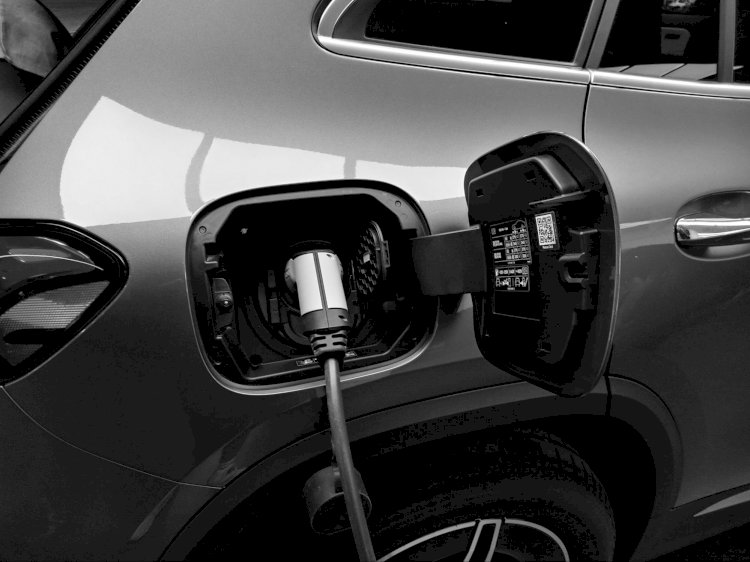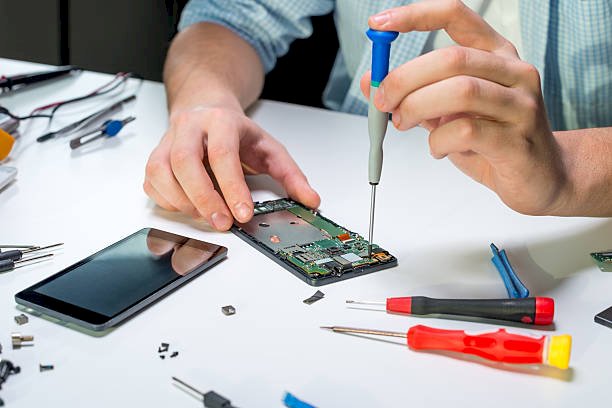What are Hybrid Cars? The Definitive Beginner's Guide
Hybrid cars are becoming increasingly popular as people become more environmentally conscious. But what exactly are hybrid cars and how do they work? In this article, we will answer all of these questions and more.

Hybrid cars are becoming increasingly popular as people become more environmentally conscious. But what exactly are hybrid cars? How do they work? What are the different types of hybrids available on the market?
In this article, Canada's Best Auto Loan will answer all of these questions in this article and more. So read on to learn everything you need to know about hybrid cars!
What are hybrid cars?
Technically, hybrid cars rely on two or more distinct power sources to move the vehicle. Usually, these power sources are a gasoline-powered internal combustion engine and an electric motor. Some hybrids also utilize solar panels and regenerative braking systems as additional power sources.
How do hybrid cars work?
To understand how hybrid cars work, we must break down the two main power sources: the gasoline engine and the electric motor.
The gasoline engine
A hybrid car's gasoline engine is pretty much the same as what you would find in a conventional gas car. It burns fuel to create energy, which powers the car. It does, however, have a smaller displacement than most cars. This means that it is more efficient and uses less fuel.
The electric motor
The electric motor is what makes hybrid cars so special. It is powered by batteries, which store electricity. This electricity powers the motor, which helps to move the car. The electric motor is usually much smaller than the gasoline engine but powerful.
What are the different types of hybrid cars?
Hybrid cars have three main types: mild hybrids, full hybrids, and plug-in hybrids. Here are descriptions of each type:
Mild hybrids
Mild hybrids are the most basic type of hybrid car. They use a gasoline engine and an electric motor, but the electric motor is only used to assist the gas engine. The electric motor cannot power the car by itself.
Full hybrids
Called full hybrids, these cars can use either a gas engine or an electric motor to power the car. They can also switch between the two power sources as needed. Compared to mild hybrids, full hybrids have larger electric motors and batteries because they need to be able to power the car on their own.
Plug-in hybrids
Also called PHEVs, these are the most advanced type of hybrid cars. They have all the features of a full hybrid, but they also have a larger battery that can be plugged into an outlet to recharge. The electric motor on a plug-in hybrid can power the car for a longer distance than a mild or full hybrid.
What are the benefits of owning a hybrid car?
There are many benefits to owning a hybrid car. Here are some of the most notable advantages:
They are more fuel-efficient.
Compared to conventional gas cars, hybrids use less fuel. This is because they have smaller gasoline engines and rely more on their electric motors. As a result, you will save money on gas in the long run.
Hybrid cars are dependable in a variety of conditions.
Because hybrids have two power sources, they are less likely to break down. If one power source fails, the other can take over. This makes them more dependable than gas or electric cars.
They emit fewer pollutants.
Naturally, since they use less gas, hybrids also produce fewer emissions. This is better for the environment and can even improve local air quality.
They have tax incentives.
In many countries, hybrid car owners receive tax breaks or other financial incentives. This helps to offset the higher initial cost of owning a hybrid car. For example, in the United States, hybrid car owners can get a tax credit of up to $7500.
What are the disadvantages of owning a hybrid car?
Of course, there are also some drawbacks to owning a hybrid car. Here are some of the potential disadvantages:
They can be more expensive.
While the long-term costs of owning a hybrid are lower, the initial cost can be higher. This is because hybrid cars are still a new technology, and their parts can be pricey.
If you're thinking of buying a brand new hybrid car, estimated upfront costs alone can range from $5000 to $8000 more than a comparable conventional car.
They require special maintenance.
Because hybrids are a new technology, there are not as many mechanics who know how to maintain them. This can make it difficult to find someone to service your car if something goes wrong.
Additionally, hybrid cars often require special parts that can be more expensive than those for a conventional car. For example, the batteries in a hybrid car can cost several thousand dollars to replace.
They have shorter ranges.
While hybrid cars are becoming increasingly efficient, they still can't match the range of a conventional gas car. This is because their electric motors are not as powerful as gas engines. As a result, you may have to recharge your battery more often on long trips.
Are used hybrid cars worth it?
The question of whether used hybrid cars are worth it is a difficult one to answer. It depends on several factors, such as the model of the car, its age, and how well it has been maintained.
In general, however, used hybrid cars can be a great deal. They often cost less than new hybrids, and you can still enjoy many benefits, such as fuel efficiency and tax breaks.
Of course, you'll need to do your research about buying used cars to make sure you're getting a good car. But if you're patient and take the time to find a quality used hybrid, it can be a great investment. Check out Car Deal Canada to see their selection of cars and Car Finance Leads for quality and exclusive leads every time.
Are hybrid cars reliable?
It's normal to be worried about the reliability of new technology like hybrid cars. However, you can rest assured that hybrids are just as reliable as any other car on the road. Many hybrid models have been named some of the most reliable cars in their class.
Case in point, the Toyota Prius has been named the most reliable car in the world by Consumer Reports for three years. So, if you're looking for a reliable hybrid car, the Toyota Prius is a great option.
Are hybrid cars good for long-distance driving?
This is a common question since one of the main disadvantages of hybrids is their shorter range. However, hybrid cars are still perfectly capable of long-distance driving.
In fact, many people always use hybrid cars for road trips. The key is planning ahead and ensuring you have enough battery power to reach your destination. Another option is to rent a hybrid car for your long-distance trip. This way, you can enjoy all the benefits of owning a hybrid car without worrying about range.
What are manual hybrid cars?
Manual hybrid cars are a type of hybrid car that is rare on the market. They combine a manual transmission with an electric motor to create a more fuel-efficient car.
However, manual hybrids can be more difficult to drive than conventional automatic hybrids. As a result, they may not be the best choice for everyone.
Final Thoughts: Is hybrid the future?
While hybrid cars are becoming more popular, they're still not as common as conventional gas cars. This is because they come with a few drawbacks, such as a shorter range and higher cost.
Still, hybrid cars have many advantages that make them a great choice for some drivers. If you're interested in owning a hybrid car, do your research to find the right one for you.
Share
What's Your Reaction?
 Like
0
Like
0
 Dislike
0
Dislike
0
 Love
0
Love
0
 Funny
0
Funny
0
 Angry
0
Angry
0
 Sad
0
Sad
0
 Wow
0
Wow
0

















